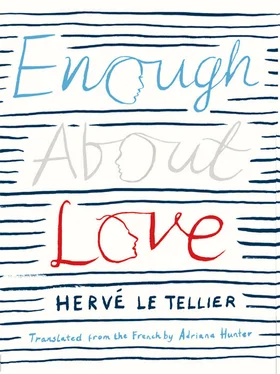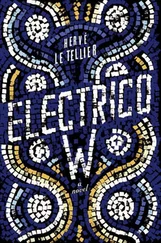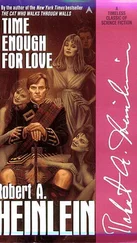Janvier, on the back cover, is not smiling at the photographer. The face does have its curves but long vertical creases on the cheeks and forehead disrupt its softness. The fair hair grows more scant over the forehead. The man’s jaw is a blend of tough and gentle. Thomas would never have guessed he was Anna’s type.
Two-Leaf Clover is a far cry from a Russian novel. At barely a hundred pages, it is more a novella, clipping along energetically, comprising twelve short chapters. He finishes it in less than an hour. Anna Stein summarized the premise well: under intermittent Celtic rain, a man is confronted with a young mistress’s cold shoulder and the casual hostility of a rented Toyota. Sickly sweet cruelty, tidy economy of expression, moments of linguistic invention. Is it the sunlight, the Indian summer, the bittersweetness of his coffee? This slender book has dropped him straight into friendly territory. If Louise could be Anna’s cousin, then Yves — he can see it himself — could easily be Thomas’s own brother. Of course, they do have Anna in common. Getting to know Janvier better hardly strikes him as intrusive. Lacan never hesitated to make contact with his patients’ partners or even their mothers. That was still more extreme, but is far from a valid argument.
Thomas puts down his glasses — he and his glasses have been inseparable for several years. Philosophy may aim to domesticate death, but farsightedness is there every day to reinforce it. He looks at the fine tortoiseshell frame, the light reflected in the lenses, not realizing he is inadvertently grimacing.
Thomas stands up and gazes briefly at the water spilling from the fountain. His cell phone rings and the screen shows a woman’s name, an old girlfriend with whom, some evenings, he likes to be a cuddling companion. A “colorful friendship” is the way they describe their intimacy. It sounds a lot better than colorless love. Thomas answers.
• •
Y VES JANVIER IS STILL SLIM, the tall sporty teenager he once was lives on in the way he moves. He runs across the Quai des Grands-Augustins, and, at fifty, could pass for a young man, although he is furious to be out of breath. His temples have been gray for a long time, but there has been a rebellious swirl through his hair ever since childhood, and it gives him a rakish, Monsieur Hulot look.
Yves is walking across Paris because he is leaving Ariane. He realizes that he left her a long time ago now, but she does not know it because nothing about them has changed on the surface. They eat, live, and sleep together, do not make love any less frequently because they had come to do it so little, and they still hold hands with genuine tenderness.
Janvier met Ariane three years earlier at a book fair in Nantes where he was being asked to sign pitifully few books and growing very bored, without actually succumbing to the temptation of getting drunk on sparkling wine. A pretty girl with brown hair and dark skin handed him a book that was a good ten years old and said: “For Ariane.” He immediately turned to the inside cover and wrote, rather provocatively: “For Ariane, who knows that a phone call can save a life.” It was stupid as could be, a bit crass even, but she smiled kindly and slipped away. In the train on the way back to Paris, she was having a cup of coffee in the dining car. When she saw him, she smiled and pretended to pick up a phone, murmured “Hello,” and mimed a conversation. He apologized for his dedication, blaming the excess of sparkling white. They had dinner together that same evening, and she decided to spend the night at his place. They were both free.
She liked the gray of his eyes, the misleading impression he gave of being bored all the time, and the way he smiled fleetingly in public, as if he only shared his smiles with her. She was radiant and graceful, and Yves Janvier was seduced by this combination of fragility and assurance so fundamental to the young. Because yes, she was young, and often seemed even younger. To the tactless waiter who once asked: “And what would your daughter like?” Ariane retorted: “Please, we’ve been married ten years.” Another time she was so irritated she even went as far as “for twenty years.” Yves burst out laughing, and so did she.
Fairly soon, simply and easily, Ariane moved in with Janvier. She did not have much furniture, not many clothes. He suggested she should sublet her one-bedroom apartment, she offered to pay half his rent, they shared the bills. Janvier was worried about tensions with his thirteen-year-old daughter Julie, but Ariane succeeded in making her more than a friend, an ally. “This time, I beg you, don’t lose her,” Julie would say happily to her father.
Ariane still had some nocturnal social habits from her student years, and Janvier did not want to crush them. The friends she went out with at night were as young as she was. Young — he was not jealous of them for that: it meant he did not have to pretend to be, when he was with her. Yves worked in the evenings, until late, and they met up even later, well into the night. Life was good, happy, easy. People envied them.
Yves is going to break up with Ariane. He thinks that if he had not met Anna Stein, it could have lasted a long time. Unless he met Anna Stein because it could not go on any longer. He is tickled by the balance between these two sentences, and writes them in his notebook.
He does not know what to expect from Anna Stein. He could not even describe her properly, the shape of her face, the color of her eyes. She is still just a feeling, but this feeling runs deep, and no longer leaves room for doubt. He had forgotten that painful, acutely intimate disruption, thought its source had run dry, blamed experience which makes everything lose its savor, or, worse, the years ticking by: they did not come into it, then. He finds this both reassuring and unsettling. He had so many tender moments with Ariane. So why did not one of them produce this burning sensation? He said “I love you” to her a thousand times. How does he now know he was lying to her every time? Yves is going to leave Ariane, and he is ashamed of that sugary warmth called fondness, ashamed of the sadness he will have to fake, ashamed of this explosive new enthusiasm he will have to hide.
Ariane is waiting for him in a café in the rue Monsieur Le Prince, she is drinking hot chocolate and reading. Before she sees him, Yves studies her. She really is very pretty, perhaps more so than Anna Stein in many people’s eyes. Gentler, too, more cheerful, he can tell already. He even knows that he will always think of her, of them, nostalgically, that he will soon miss this tender sense of peace, and knows he will never dare admit this regret to her later. But Anna Stein has captivated him, dazzled him, and Yves is not putting up a fight, he wants to be exposed to this blissful onslaught, he wants to experience the vertiginous fall once more, having given up hope of finding it again.
• •
T HOMAS DOES NOT LIKE THE ZIMMER HOTEL. He has not set foot in the place for ten years, but nothing has changed. Still too much velvet, too much red, too much carpeting. And too many cars on the Place du Châtelet. All the same, he does like not feeling at home: having to confront those rococo chairs and sofas gives him a boost. He is far too early, by almost half an hour, without meaning to be. Ten years ago, he would have spent the time browsing the bouquiniste stalls for secondhand books, or dropped in to look at stick insects and boa constrictors at the zoo. But his youthful curiosity has been dulled, and any reenactment would taint the experience with nostalgia. All the same, if Louise would like to, he will take her to shudder at the reptiles and tarantulas, he will tell her about the Galápagos marine iguana, the only animal whose skeleton shrinks when food is in short supply.
Читать дальше












